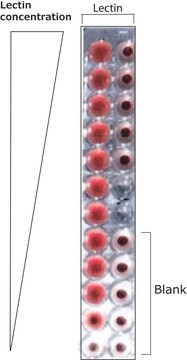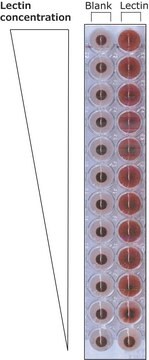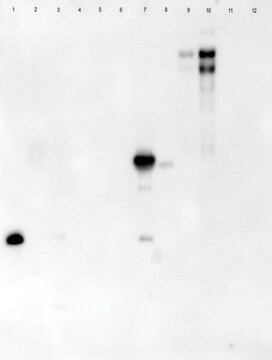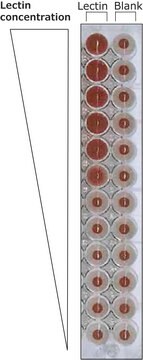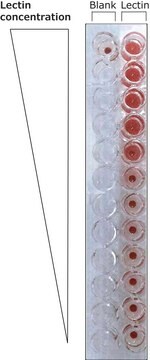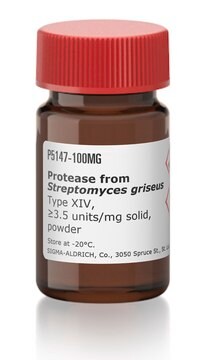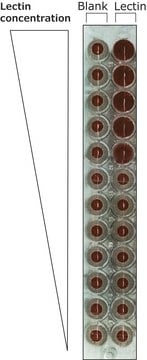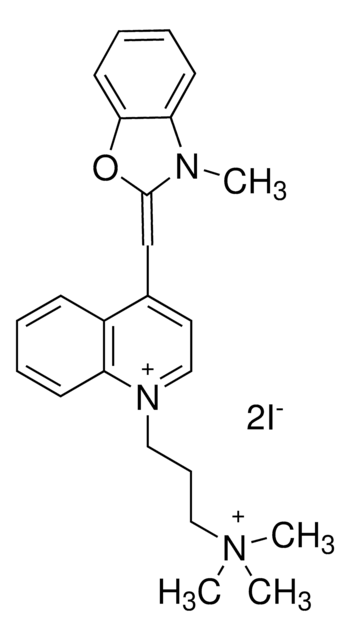L7381
Lectin from Arachis hypogaea (peanut)
FITC conjugate, lyophilized powder
Sinónimos:
PNA, Peanut agglutinin
About This Item
Productos recomendados
conjugado
FITC conjugate
Nivel de calidad
formulario
lyophilized powder
composición
Protein, ~10% Lowry
Extensión del etiquetado
4-8 mol FITC per mol protein
temp. de almacenamiento
−20°C
¿Está buscando productos similares? Visita Guía de comparación de productos
Categorías relacionadas
Descripción general
Aplicación
- to determine the acrosomal status (presence or absence of acrosomal matrix corresponding to intact or acrosome-reacted spermatozoa) on viable sperm cells
- to probe cryosections of mediastinal lymph nodes (mLNs) with fluorochrome-labeled PNA and anti-B220 to detect germinal centers (GCs)
- to visualize the cone outer segments of pre-treated retinal sections
Acciones bioquímicas o fisiológicas
Forma física
Código de clase de almacenamiento
11 - Combustible Solids
Clase de riesgo para el agua (WGK)
WGK 3
Punto de inflamabilidad (°F)
Not applicable
Punto de inflamabilidad (°C)
Not applicable
Equipo de protección personal
Eyeshields, Gloves, type N95 (US)
Certificados de análisis (COA)
Busque Certificados de análisis (COA) introduciendo el número de lote del producto. Los números de lote se encuentran en la etiqueta del producto después de las palabras «Lot» o «Batch»
¿Ya tiene este producto?
Encuentre la documentación para los productos que ha comprado recientemente en la Biblioteca de documentos.
Los clientes también vieron
Nuestro equipo de científicos tiene experiencia en todas las áreas de investigación: Ciencias de la vida, Ciencia de los materiales, Síntesis química, Cromatografía, Analítica y muchas otras.
Póngase en contacto con el Servicio técnico